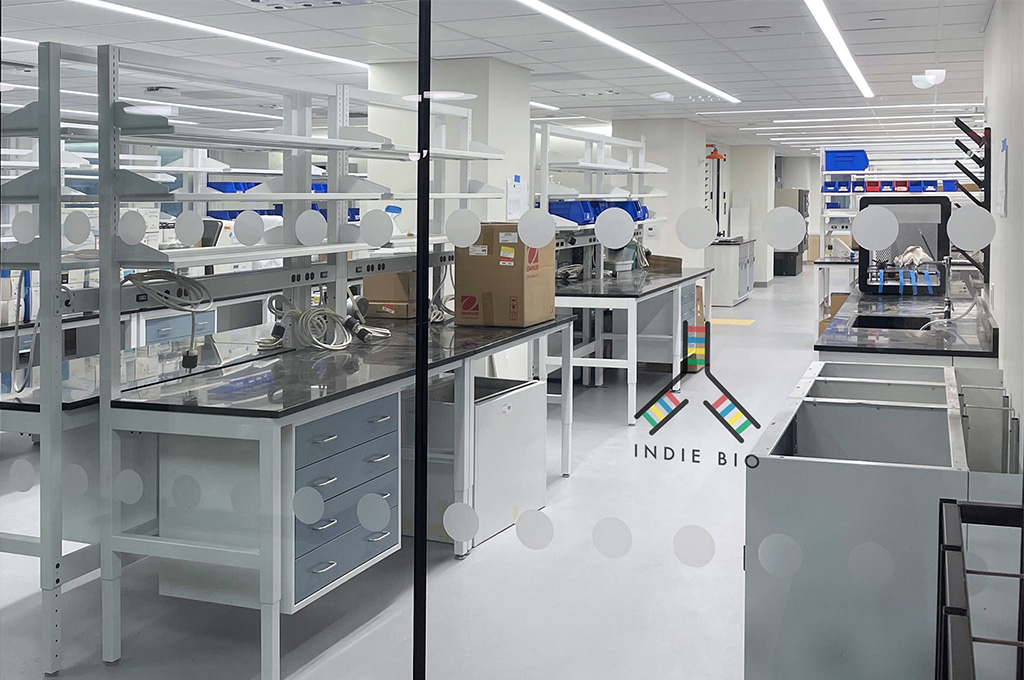RizLab Health is addressing the pandemic of antimicrobial resistance and helping clinicians by pinpointing the source of infection (and thus preventing inappropriate antibiotic prescriptions) with their point-of-care device, the CytoTracker. The CytoTracker differentiates bacterial from viral infection profiles within minutes. A 200-person clinical study demonstrated the CytoTracker beats the specificity of current testing methods, making it the most affordable, portable, and accurate blood analyzer, with additional applications on the horizon.
Watch Rizlab Health present at IndieBio NY Class 3 Demo Day
We spoke with RizLab CEO Mehdi Javanmard, Ph.D., about his portable blood analyzer and what science tells us can really be tested using a drop of blood.
What work prepared you for making small, portable lab devices?
I started out working at the Stanford Linear Accelerator Center, where we were working on making accelerators that are normally several miles long, that can make electrons travel at the speed of light, down to the size of a shoe box.
The lab that I did my doctoral studies in Stanford, the Stanford Genome Technology Center, was was home to numerous spin off companies, and numerous innovative discoveries in the space of biotechnology, namely, the DNA microarray, and also many important large biotech companies spun out of that lab, including Illumina.
I was working on a project that involved taking large scale labs, and shrinking it down to the size of a chip.
How does the name RizLab relate to a portable white blood cell lab?
So as an electrical engineer, I was always fascinated with miniaturization. of labs. I did my doctoral studies on making labs for detecting cells, microbes, and mammalian cells, shrinking them, making them really small. I continued further developing these technologies over the years in an academic setting.
When the technology got to a point where I felt it was robust enough to actually be used in the hands of patients, that’s when we decided to spin off a company.
The word riz in Farsi, which is the language spoken in Iran, which is the land that my parents immigrated from over 40 years ago, means very tiny. And since I’ve dedicated my whole career to making very tiny labs, we decided to name the company, Riz Lab.
How does the first product from RizLab Health, the Cytotracker, measure blood components?
The Cytotracker is a fully electronic device that has a really small reader thatt fits in the palm of your hand, and a tiny microchip that plugs in, which is disposable. And the disposable test strip has inside it a microfluidic channel with sensors.
What that means is that there’s a tiny channel that is thinner than the diameter of one human hair, where cells pass over micro electronic sensors in a single file line, similar to how airport passengers walk through a security line in a single file line, walking past a facial scanner.
Can you really do this with only a drop of blood?
The first question that investors and scientists alike ask us is: can you really do this with only a drop of blood? The answer is that there are many things that you can do with only a drop of blood, many different analytes [you can measure] as long as you’re focused, and you’re targeting the right set of analytes so that the concentrations are not widely different.
What’s difficult though, with a single drop of blood is, trying to tackle a wide range of analytes, trying to do 200 things at once that have, you know, over six orders of magnitude, right? That’s one million times difference in concentration—that’s very hard.
Focusing on molecules and analytes that are fewer in number while using a more targeted approach—that’s something that is completely feasible.
What insight allowed you to create the Cytotracker?
Quantifying white blood cells in a drop of blood is challenging, because it’s similar to a haystack that has hundreds of millions of straws of hay with a few thousand needles, and you’re trying to find out exactly how many needles are in that haystack.
What we did was come up with a novel way to make the hay straws invisible, electrically, and only be able to detect and quantify the needles.
How does your recent clinical trial support the mission of RizLab Health?
RizLab’s mission is to democratize diagnostic technology by making it extremely portable and extremely affordable.
Results of our recent 200-person study mean for RizLab is that it proves the speed, the portability, and also the accuracy of our device, showing that this is a commercially viable option that has the potential to make it all the way to regulatory clearance.
I hope to see in the future that one day everybody will have access to tiny labs, so that they can continuously monitor their health and so that diseases can be diagnosed within minutes, not days.



